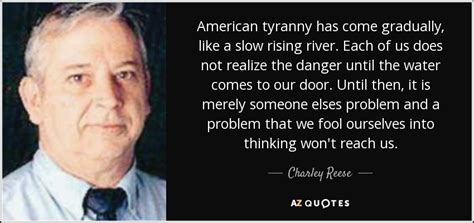A Quote by John C. Bogle
Yes, the investor is often his own worst enemy. Yes, the marketing colossus known as the mutual fund industry provides the weaponry which enables investors to indulge their suicidal instincts. No, the fund industry was hardly an innocent bystander in the market boom and the subsequent carnage. "We have met the enemy and he is us"... all of us.
Related Quotes
If Americans wish to preserve a country they will recognize, then the first step is to recognize the enemy. Public education is the enemy. The entertainment industry is the enemy. The corporate culture is the enemy. The advertising industry is the enemy. And most of the politicians in both parties are the enemy. An enemy is defined as anybody, or any organization, which is attacking the traditional beliefs of Americans.
The culture of the mutual fund industry, when I came into it in 1951, was pretty much a culture of fiduciary duty and investment, with funds run by investment professionals. The firm I worked with, Wellington Management Co., they had one fund. That was very typical in the industry... investment professionals focused on long-term investing.
Santa Claus and the Easter Bunny should take a few pointers from the mutual-fund industry. All three are trying to pull off elaborate hoaxes. But while Santa and the bunny suffer the derision of eight year olds everywhere, actively-managed stock funds still have an ardent following among otherwise clear-thinking adults. This continued loyalty amazes me. Reams of statistics prove that most of the fund industry's stock pickers fail to beat the market.
The idea that a bell rings to signal when investors should get into or out of the stock market is simply not credible. After nearly fifty years in this business, I do not know of anybody who has done it successfully and consistently. I don't even know anybody who knows anybody who has done it successfully and consistently. Yet market timing appears to be increasingly embraced by mutual fund investors and the professional managers of fund portfolios alike.
The fund scandals shined the spotlight on the fact that mutual fund managers were putting their interests ahead of the fund shareholders who trusted them, which had much more substantial consequences in the form of excessive fees and the promotion - as the market moved into the stratosphere - of technology funds and new economy funds which were soon to collapse.
Rip Van Winkle would be the ideal stock market investor: Rip could invest in the market before his nap and when he woke up 20 years later, he'd be happy. He would have been asleep through all the ups and downs in between. But few investors resemble Mr. Van Winkle. The more often an investor counts his money - or looks at the value of his mutual funds in the newspaper - the lower his risk tolerance.
Invest in low-turnover, passively managed index funds... and stay away from profit-driven investment management organizations... The mutual fund industry is a colossal failure... resulting from its systematic exploitation of individual investors... as funds extract enormous sums from investors in exchange for providing a shocking disservice... Excessive management fees take their toll, and manager profits dominate fiduciary responsibility.
Still, I figure we shouldn't' discourage fans of actively managed funds. With all their buying and selling, active investors ensure the market is reasonably efficient. That makes it possible for the rest of us to do the sensible thing, which is to index. Want to join me in this parasitic behavior? To build a well-diversified portfolio, you might stash 70 percent of your stock portfolio into a Wilshire 5000-index fund and the remaining 30 percent in an international-index fund.




























